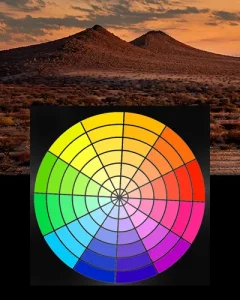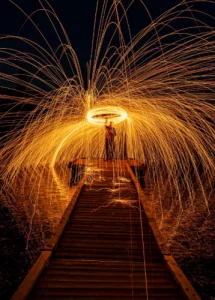
Colour Theory for Photographers: A Practical Guide
Colour theory for photographers is something I never thought about when I first started out.
Share the Love This Valentine’s Day – 25% Off


Pondering about entering a photography competition? Are you hoping for recognition or a career boost from entering a competition? Contests like the North Shore Photography Challenge (NSPS) promise exposure and prizes, but are they really helping you grow, or are they taking your money?
The truth is, these competitions often come with a hidden agenda, and it’s not in your favour. I felt compelled to voice my concerns after being burned by the system not once but twice.
I don’t usually write posts like this, but my experiences opened my eyes to the reality behind these contests, and I don’t want others to fall into the same trap.
So, let’s dive in. By the end of this post, you’ll understand why it may be better to invest your time and money into growing your skills and not chasing competitions.
Photography competitions are a big deal for many photographers, and it’s easy to see why. First, they offer a chance for recognition and exposure. Having your work seen by judges, peers, or even a larger audience can feel like a huge win.
Second, there’s the chance to win prizes or accolades. Who wouldn’t want to walk away with a, cash prize, or even just bragging rights?
Finally, competitions give photographers a feeling of validation and accomplishment. It’s proof that your hard work and creativity are paying off.
The NSPS is a competition that meets all your requirements. It typically involves submitting your best shots, often with an entry fee, and a chance to win prizes and recognition. The format is straightforward, and the promise of exposure makes it especially appealing.
However when I entered the North Shore Photography Challenge, I faced a frustrating setback: the organizers misplaced my submissions, not once, but twice. (2019, 2022) each time one of my entries was lost in the upload, which was disappointing since I wanted my work to be evaluated.
It was only on the second competition that I inquired as to what happened, which to my surprise I was informed that the judging had already concluded and there was no further action available. I had to escalate the issue to the club president before they allowed me to resubmit.
This experience made me wonder how many others had the same issue and didn’t speak up.
...Bob
Looking to stretch your budget? We’ve got good news! Save an additional 10% use code bwild10
Photography competitions might seem like they’re all about celebrating art, but the truth is, many of them are businesses first. Take the International Landscape Photography Awards. They charge you $125 USD to submit five photos. with the top 100 images making the book (Yup, I made the book in 2018). The catch they want you to purchase a hard copy and it’s not cheap it’s at a premium price. This double-dipping approach is common in the industry.
One of the biggest ways competitions make money is through entry fees. These fees can range from a few dollars to hundreds, depending on the competition. While they might seem small at first, they add up quickly when hundreds or even thousands of photographers enter.
Another way competitions generate revenue is through sponsorship and partnerships. Brands often sponsor these events to promote their products or services, and in return, the competition gets funding. This might sound like a win-win, but it often means the competition’s focus shifts from celebrating photography to promoting those brands.
Lastly, many competitions use participants’ work for promotional purposes. When you submit your photos, you’re often giving the organizers permission to use them in their marketing, without paying you. This implies that the organizers utilize your diligent efforts to draw in additional participants or sponsors, offering you minimal or no compensation in return.
While competitions might seem like a wonderful opportunity, they come with hidden costs. First, there’s the financial cost of entry fees, which can add up if you enter multiple contests. Then, there’s the time cost. Preparing and submitting your work takes hours, and there’s no guarantee it’ll pay off.
Despite winning, exposure may not be as valuable as you think. Many competitions have small audiences, so your work might not reach as many people as you’d hoped.
One of the biggest hidden costs is the emotional toll these competitions take. Investing deeply in your work, only to encounter rejection, can be immensely disheartening. It’s easy to start questioning your skills or even your passion for photography. And if you do win, the excitement can be short-lived, especially if the promised exposure or prizes don’t live up to your expectations.

Many photographers enter a photo contest hoping for exposure, but the reality often falls short. A small audience might only see your image, even if you win an award or receive the Photographer of the Year title. For example, winning a category in a photography competition might get your work featured in an online gallery or a magazine, but these platforms rarely reach a wide audience.
The judges in these competitions often have subjective tastes, which means your photograph might not get the recognition it deserves. Even if you capture an outstanding moment, the judges may overlook it simply because it doesn’t align with their preferences.
From what I’ve seen, competitions like CAPA (Canadian Association for Photographic Art) tend to favour traditional, conservative styles over more artistic or innovative works of art. Their judging criteria often feel narrow and outdated, leaving little room for creativity.
It’s frustrating to see unique, thought-provoking images dismissed simply because they don’t fit a rigid mold.
Competitions often claim to acknowledge the best work, but the results can feel more like a popularity contest than a fair evaluation of skill. If the judges’ tastes don’t match your artistic vision, your work might never get the recognition it deserves no matter how good it is.
When you submit your work to a photo contest, you’re investing time and money that could be better spent elsewhere. For instance, instead of paying to enter a competition, you could use that cash to upgrade your camera or take a course to improve your skills.
Similarly, you could use the hours spent preparing your visual story to explore new locations, or expand your portfolio. Competitions might promise a prize, but the real cost is the missed opportunity to grow as a photographer.
Winning a title like Photographer of the Year might sound impressive, but it doesn’t always lead to real-world opportunities. Many competitions promote their winners with flashy exhibitions or invite them to join exclusive platforms, but these perks are often short-lived.
Without a solid plan to promote your work, the title alone won’t help you advance your career. Competitions might offer a moment of glory, but they rarely provide the tools or connections you need to succeed in the long term.
Download your free trial today!
Instead of spending money on entry fees, consider investing in your skills. Online platforms offer courses that can help you master your camera and improve your photographic techniques. Learning new skills will improve your photography and boost your confidence.
Focus on creating a strong portfolio that showcases your unique style. Whether you have a passion for landscape or portrait photography, a well-curated portfolio can lead to new opportunities. Share your work on platforms like Instagram or 500px to gain exposure and connect with potential clients or collaborators.
Social media is a powerful tool for photographers. Platforms like Facebook and Pinterest allow you to promote your work, build an audience, and even sell your photographs. By consistently sharing your best images, you can attract followers who appreciate your unique style.
Before entering any photo contest, take time to research its reputation. Look for reviews or feedback from past participants. If the competition has a history of acknowledging diverse styles and providing real value to winners, it’s likely a better choice. Remember, a worthwhile competition should help you grow as a photographer, not just take your money.
Photography competitions might seem like a fantastic way to gain recognition and boost your career, but the reality is often far from what they promise. From profit-driven motives to questionable judging and limited exposure, these contests can leave you feeling frustrated and undervalued.
My own experiences, like having my submissions misplaced twice highlight the flaws in the system and the importance of speaking up when things go wrong.
Instead of chasing competitions, consider investing your time and money into building your skills, and creating a standout portfolio. By focusing on these alternatives, you’ll not only grow as a photographer but also avoid the pitfalls of competitions that prioritize profit over your success. Remember, your talent deserves more than just a fleeting moment of glory—it deserves a platform that truly supports your growth.
Let’s shift the focus from competing to creating and from chasing prizes to building a lasting career. Your photography journey is worth more than any trophy.

Colour theory for photographers is something I never thought about when I first started out.

I think steel wool photography creates some of the most amazing images you can capture

Long exposure photography is a technique that uses slow shutter speeds to capture silky smooth